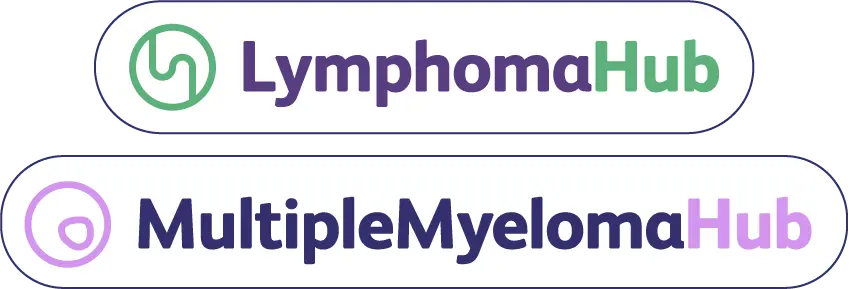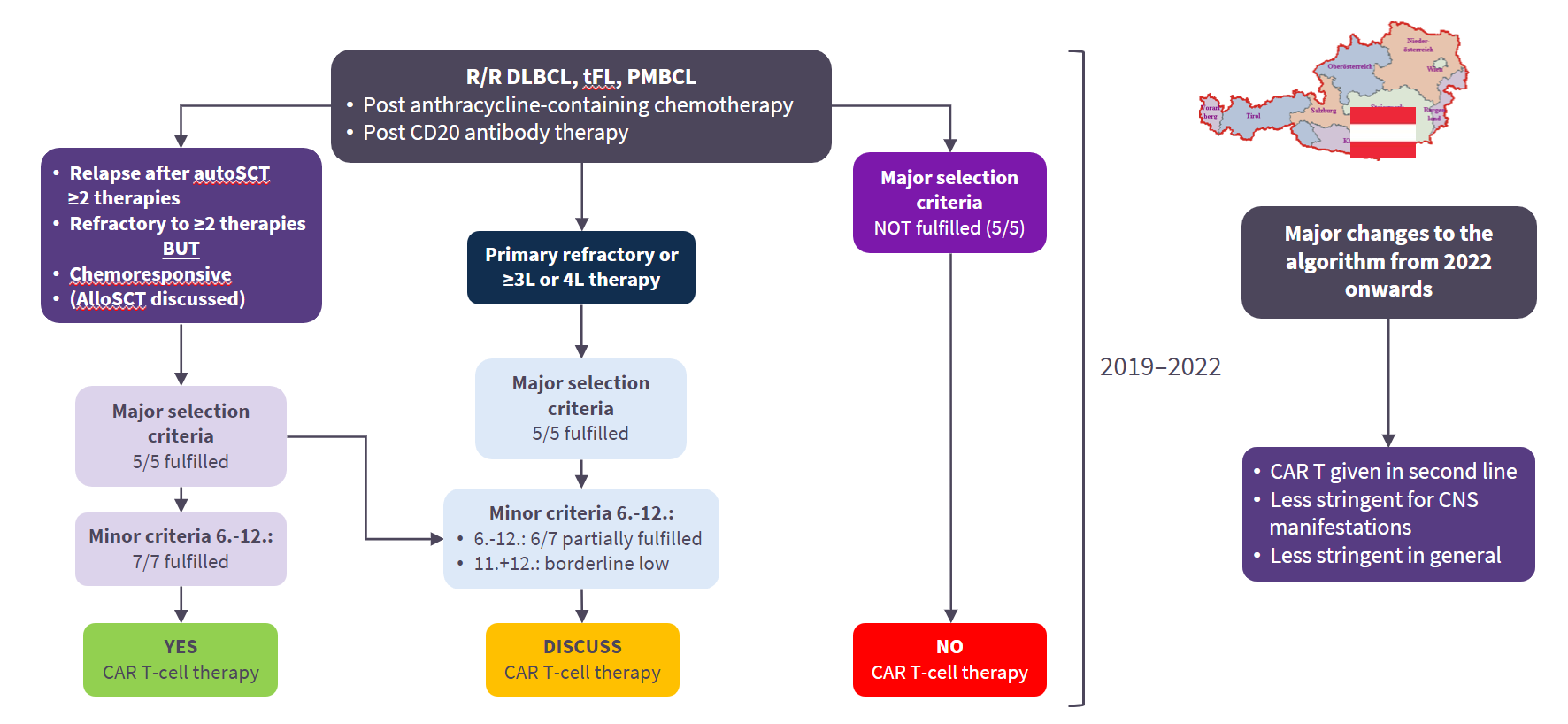All content on this site is intended for healthcare professionals only. By acknowledging this message and accessing the information on this website you are confirming that you are a Healthcare Professional. If you are a patient or carer, please visit the Lymphoma Coalition.
The Lymphoma Hub uses cookies on this website. They help us give you the best online experience. By continuing to use our website without changing your cookie settings, you agree to our use of cookies in accordance with our updated Cookie Policy
An expert panel hosted by

Sequencing immune-based therapies in B-cell malignancies
with Ulric Jäger, Sagar Lonial, and Krina Patel

Saturday, June 15 | 18:00-19:30 CEST
Register nowThis independent education activity is sponsored by Bristol Myers Squibb. All content is developed independently by the faculty. Funders are allowed no direct influence on the content of this activity.
The Lymphoma Hub website uses a third-party service provided by Google that dynamically translates web content. Translations are machine generated, so may not be an exact or complete translation, and the Lymphoma Hub cannot guarantee the accuracy of translated content. The Lymphoma Hub and its employees will not be liable for any direct, indirect, or consequential damages (even if foreseeable) resulting from use of the Google Translate feature. For further support with Google Translate, visit Google Translate Help.
CAR T-cell case study: Sequencing therapies for patients with high-risk DLBCL
Featured
Bookmark this article
Video series
The ins and outs of CAR T cells in the real word: Live Hub Event
Here, we share a presentation by Ulrich Jӓger, Medical University of Vienna, Vienna, AT, on a case study to evaluate sequencing therapies for patients with high-risk diffuse large B cell lymphoma (DLBCL).
The Lymphoma Hub has previously covered sequencing therapies for patients with high risk DLBCL.
In this presentation, Jӓger shares a case study from 2019 of a 59-year-old female patient with DLBCL and the treatment decisions leading to chimeric antigen receptor (CAR) T-cell therapy, changes from 2019 to 2022 onwards in the algorithm for patients with DLBCL in clinical routine (Figure 1), and results in relapsed/refractory (R/R) patients with low-risk DLBCL treated with CAR T-cell therapy, presented at the European Hematology Association (EHA) 2023 Hydrid Congress (Figure 2).
Figure 1. Selection algorithm for patients with DLBCL in clinical routine: Austrian CAR T-cell Network*

*Adapted from Greinix, et al.1
Figure 2. Probability of OS and PFS of patients with R/R LBCL infused with commercial CAR T-cell compounds*

CAR, chimeric antigen receptor; CI, confidence interval; LBCL, large B-cell lymphoma; OS, overall survival; PFS, progression-free survival; R/R, relapsed/refractory
*Adapted from Rudzki, et al.2
†Data from 65 patients treated with axicabtagene ciloleucel or tisagenlecleucel.
Watch or download the presentation to learn more about the understanding of CAR T-cell therapy in patients with DLBCL, including:
- A real-world evidence case study of a patient with DLBCL treated in 2019 according to the algorithm for patients with DLBCL in clinical routine.
- The key changes to the algorithm from 2019 to 2022 onwards, focusing on the removal of the requirement of no central nervous system (CNS) involvement in their diagnosis.
- Data presented from the 64th American Society of Hematology (ASH) Annual Meeting and Exposition on progression-free survival and overall survival in low-risk patients with DLBCL treated with CAR T-cell therapy.
Key points
- Special populations, such as patients with secondary CNS lymphoma, can be included in CAR T-cell treatments.
- Secondary CNS lymphoma can be successfully treated with CAR T-cell therapy.
- Sequencing capabilities have rapidly advanced since 2019 and earlier CAR T-cell therapy use in first-line high-risk DLBCL is recommended, while use in second line is a standard-of-care treatment for some lymphoma subtypes.
- CAR T-cell therapy is preferred to autologous stem cell transplant and complete response is no longer required.
This activity was supported through an educational grant from Bristol Myers Squibb.
- Greinix HT, et al. Ensuring center quality, proper patient selection and fair access to chimeric antigen receptor T-cell therapy: position statement of the Austrian CAR-T Cell Network. Magazine of European Medical Oncology. 2020;13:27-31. DOI: 1007/s12254-020-00582-4.
- Rudzki CJ. First real world data from the Austrian CAR T Network. Poster #2964. EBMT-EHA 5th European CAR T-cell Meeting; Feb 9, 2023; Rotterdam, NL.

Understanding your specialty helps us to deliver the most relevant and engaging content.
Please spare a moment to share yours.
Please select or type your specialty
 Thank you
Thank youVideo series
The ins and outs of CAR T cells in the real word: Live Hub Event
Newsletter
Subscribe to get the best content related to lymphoma & CLL delivered to your inbox








